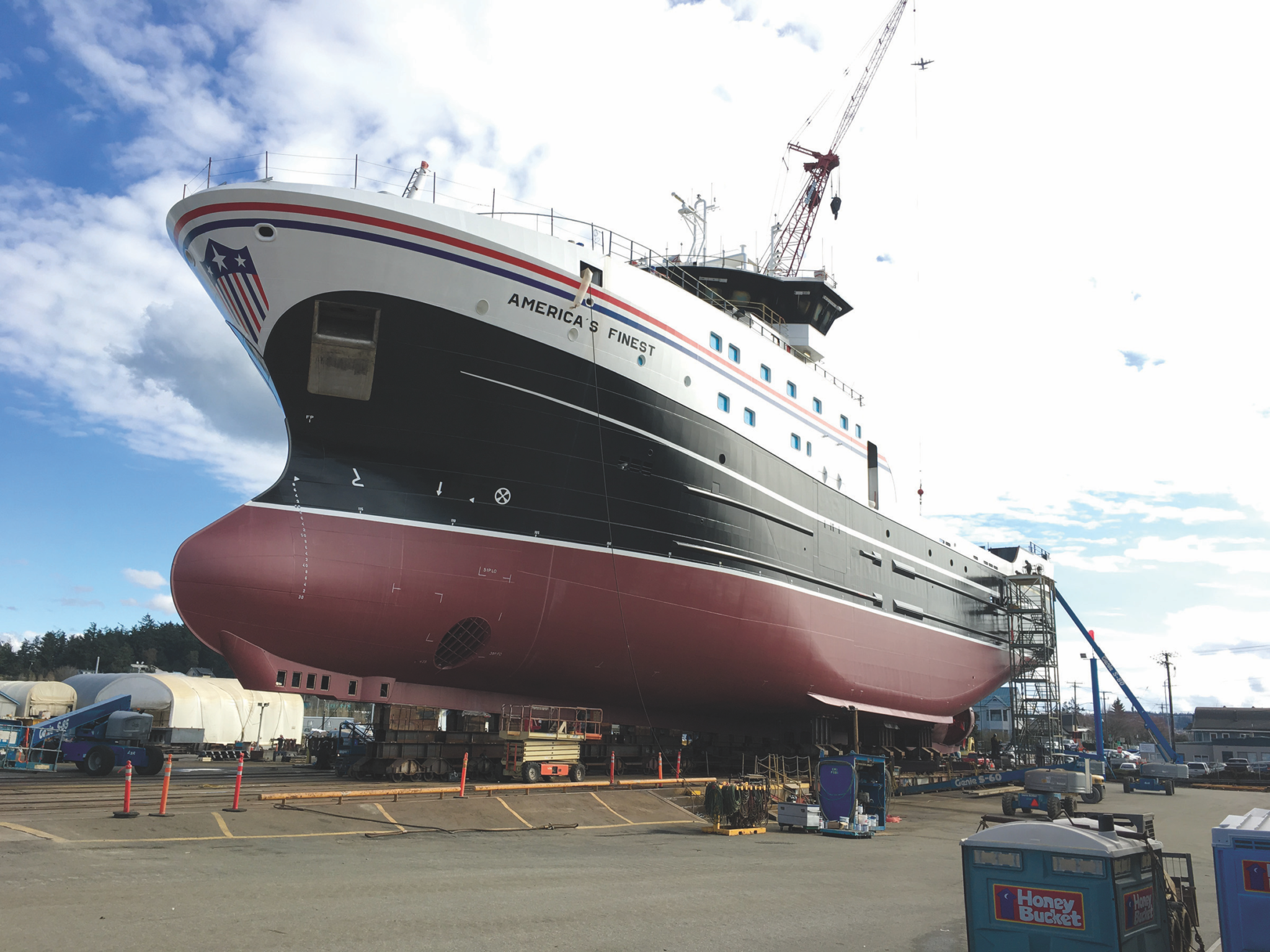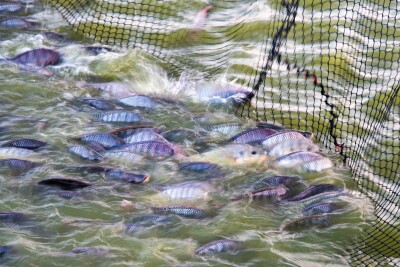I expect we’ve all heard of the wisdom of Solomon, exemplified by the story of two harlots who lived in the same house. Each had an infant son, and when one died (crushed under his sleeping mother, for those of you with a yen for allegory), each claimed the surviving boy as hers.
King Solomon drew his sword and said he would cut the infant in two and each woman could have half. One mother readily agreed. The other pleaded with the king to give it to the first so that the baby would survive. Solomon declared her the rightful mother because she was prepared to sacrifice her claim to assure her son’s survival.
I am beginning to think we need a modern-day Solomon to resolve the issue of America’s Finest, a brand-new, 264-foot trawler idly afloat in a Washington shipyard awaiting its fate.
The vessel was to have been fishing in the Bering Sea by late last fall. Instead, America’s Finest remains in Anacortes, where its builder, Dakota Creek, has laid off upward of 130 of its 330 employees, “marooned,” as the Seattle Times described it, by Jones Act transgressions.
The truth, of course, is slightly more complicated — no surprise in the fishing business.
Dakota Creek ran afoul of the Jones Act by using too much steel fashioned outside of the United States. The law, intended to protect U.S. mariners and shipbuilders, allows only 1.5 percent (by weight) of a vessel to be of foreign construction.
Dakota Creek has acknowledged that as much as 10 percent of the weight of America’s Finest is considered foreign.
How Dakota Creek allowed this to happen in the construction of a $75 million vessel is not clear to me. Like it or not, the Jones Act is written in stone, if you’re an American shipbuilder, and more often than not, to your advantage.
A solution that might seem pragmatic, such as imposing a substantial fine and allowing the vessel to go on its merry way, would be unlikely to sit well with shipbuilders across the country, who would view it as the camel’s nose (or its maritime equivalent) of globalism.
Nevertheless, Jones Act waivers are not unheard of, which is where things get complicated. Competitive fishing interests have become vocal in their opposition to a waiver, and not because they have taken the Jones Act to heart. They want “to ensure that no direct or indirect competitive advantage arises from the granting of a waiver,” in the words of a memo from the Pacific Seafood Processors Association cited in the Times.
More to the point, on Friday The Bristol Bay (Alaska) Times reported that representatives from three prominent seafood processors in late February spoke before the Unalaska City Council in favor of so-called sideboards — restrictions on transferring excess fishing capacity — that would adversely affect America’s Finest by constraining its ability to buy and process fish from other vessels at sea.
The practice, known as mothershipping, decreases the amount of fish delivered to shoreside processors and has increased significantly over the last two seasons, the processors told the city council.
Meanwhile, the vice mayor of Unalaska has his own ax to grind, citing a challenge by Fishermen’s Finest’s to Alaska’s resource landing tax. Unalaska’s Dutch Harbor leads the United States in volume of fish landed.
There was a time when Alaska’s iconic Sen. Ted Stevens could knock heads and bring about the resolution of thorny fishery disputes — “food fights,” as they are sometimes described by industry wags. But Stevens is gone, and no one seems to have emerged to take his place.
And so we cast about for the Solomonic solution, knowing short of that, all that this baby will be broken into three pieces: a shipyard, a community, and a $75 million vessel whose intrinsic value is not the weight of steel, but of fish.
This would be a test, even for the King of Israel. After all, he plied his trade in the Middle East. This is the fishing business.







